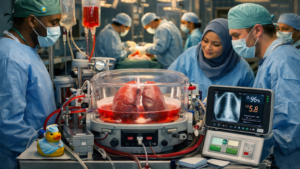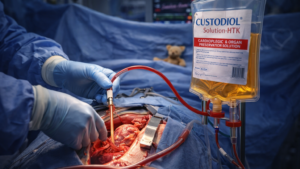Background: Coronary artery disease (CAD) due to myocardial ischemia causes permanent loss of heart tissue.
Objectives: We aimed to demonstrate the possible damage to the myocardium at the molecular level through the mechanisms of autophagy and apoptosis in coronary bypass surgery patients.
Methods: One group was administered a Custodiol cardioplegia solution, and the other group was administered a Blood cardioplegia solution. Two myocardial samples were collected from each patient during the operation, just before cardiac arrest and after the aortic cross-clamp was released. The expressions of autophagy and apoptosis markers were evaluated. The level of statistical significance adopted was 5%.
Results: The expression of the BECLIN gene was significant in the myocardial tissues in the BC group (p=0.0078). CASPASE 3, 8, and 9 gene expression levels were significantly lower in the CC group. Postoperative TnT levels were significantly different between the groups (p=0.0072). CASPASE 8 and CASPASE 9 gene expressions were similar before and after aortic cross-clamping (p=0.8552, p=0.8891). In the CC group, CASPASE 3, CASPASE 8, and CASPASE 9 gene expression levels were not found to be significantly different in tissue samples taken after aortic cross-clamping (p=0.7354, p=0.0758, p=0.4128, respectively).
Conclusions: With our findings, we believe that CC and BC solutions do not have a significant difference in terms of myocardial protection during bypass operations.







